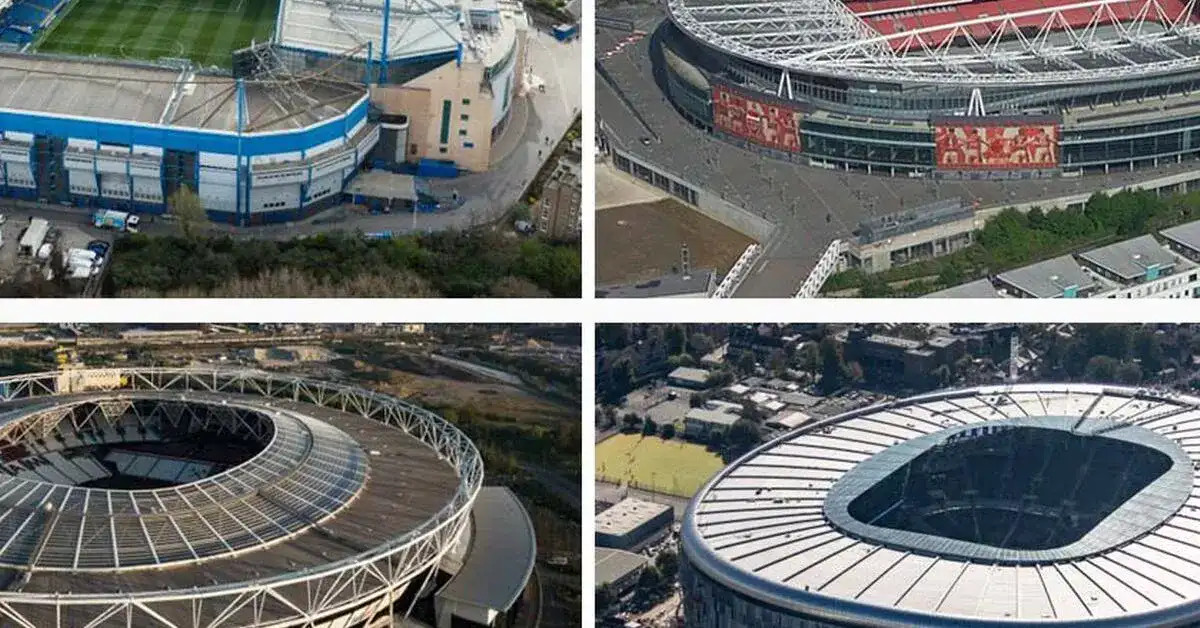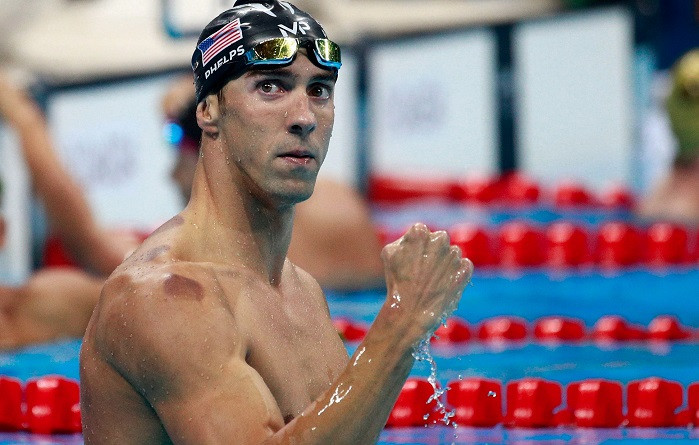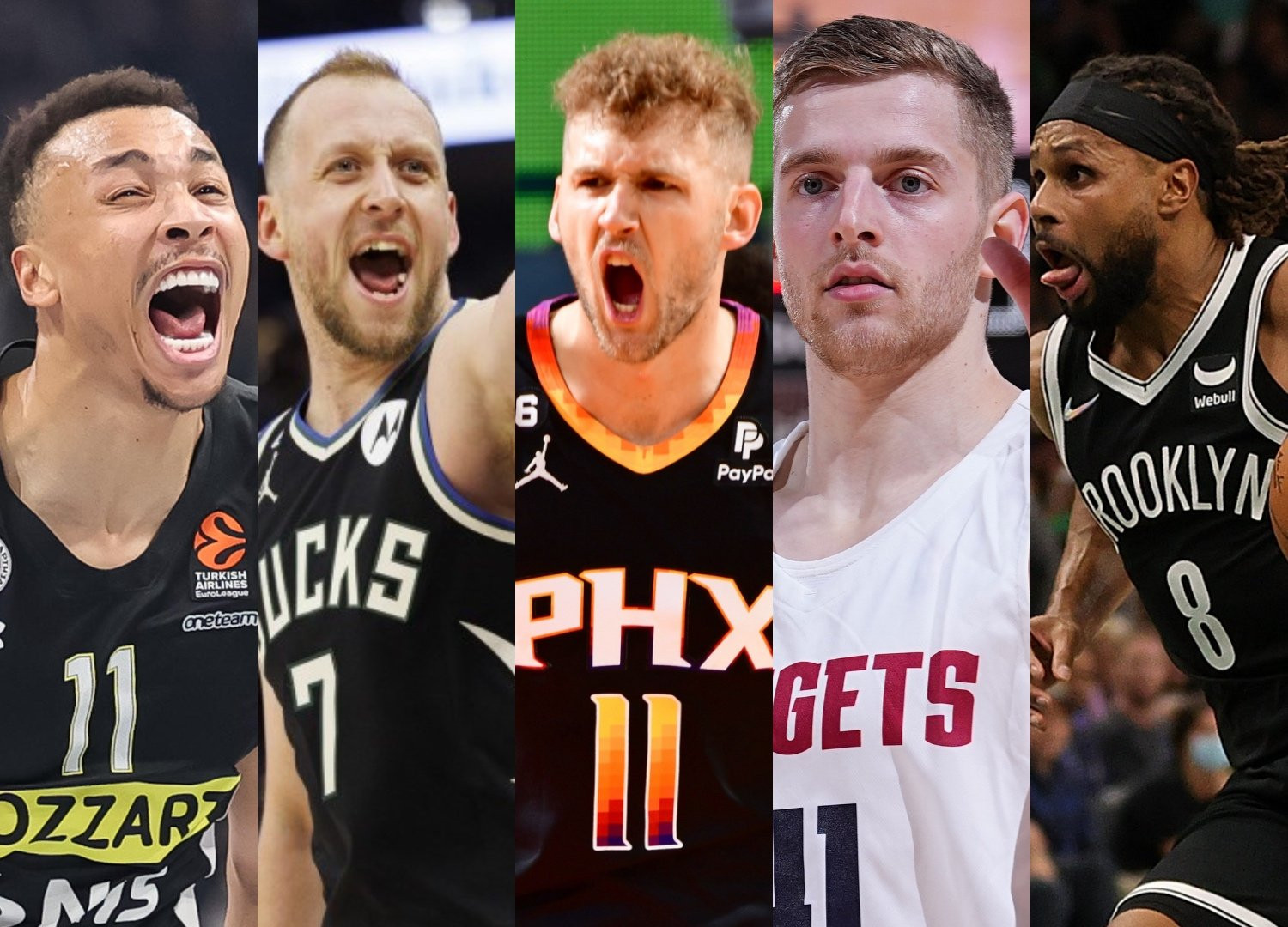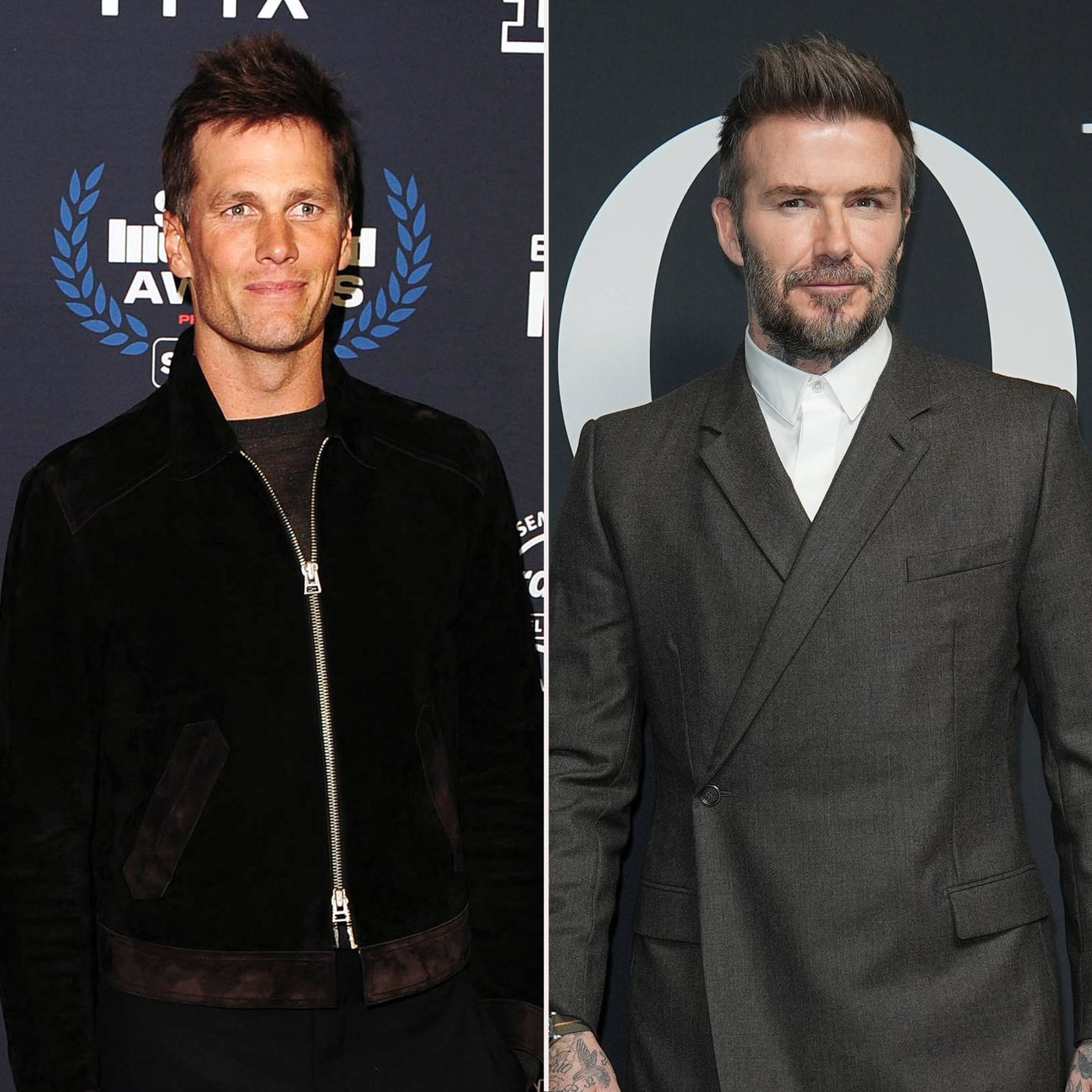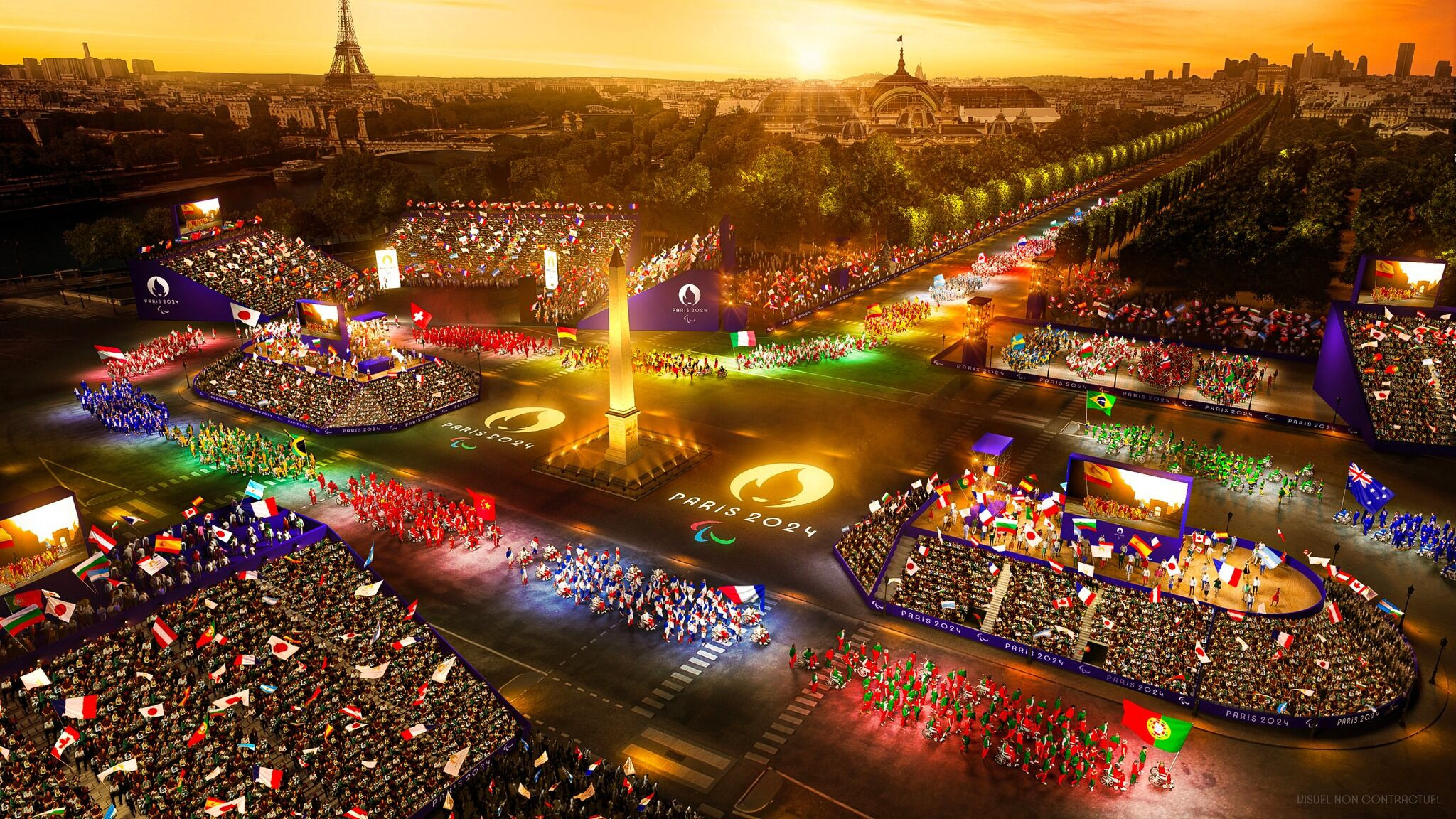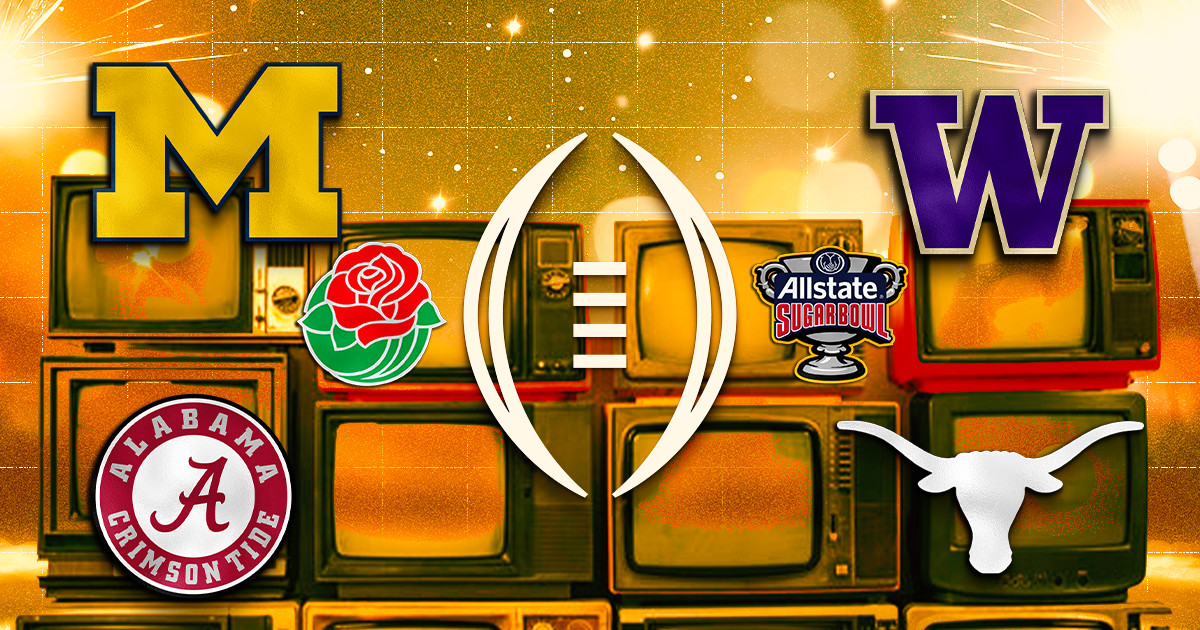Blind soccer often produces some of the most memorable moments at the Paralympics. Remarkable videos of players showing incredible coordination and skill, slaloming through entire teams and scoring have gone viral at previous Games – and you can expect more of the same in Paris.
First introduced to the Paralympics at Athens 2004 and featuring in every Games since, Brazil has – perhaps unsurprisingly – become the team to beat, winning gold at every edition to date. Nonato’s brilliant solo goal in the gold medal match in Tokyo three years ago earned the Seleção a narrow 1-0 over arch-rival Argentina to main its 100% record.
Argentina has been Brazil’s closest competition over the years and has made every blind soccer podium except London 2012.
The sport originated as a playground game for schoolchildren with visual impairments, according to ParaFootball. The International Blind Sports Federation (IBSA) made blind soccer one of its official sports in 1996. There is only a men’s tournament at the Paralympics.
Each team is made up of five players: four outfield players and a goalkeeper. The outfield players must be classified as “completely blind” – meaning they have “very low visual acuity and/or no light perception” – but all of them must wear eye patching and eyeshades as some might see more light and shadows than others. The goalkeepers, meanwhile, are sighted or partially sighted and provide vital communication to their team in defense, though they must stay inside the small, restricted area around the goal. Each team also has another two guides to help them, one at the halfway line and another behind the goal the team is attacking.
The matches are 40 minutes long and are split into two halves of 20 minutes; in able-bodied soccer, matches are 90 minutes long in regulation with 45-minute halves. The field of play for blind soccer measures 40m x 20m (or roughly 131.2ft x 65.6ft), whereas FIFA recommends pitches of 105m x 68m (roughly 344.5ft x 223.1ft) for the able-bodied game.
While soccer matches are renowned for having boisterous and very loud crowds, spectators must remain silent during play in blind soccer so players can hear the ball, which has sewn-in rattles and is a size three ball, smaller than the standard size five used in the 11-a-side, able-bodied game. There are also boards the whole way around the pitch to prevent the ball from going out of play, allowing for a faster paced game.
Players must shout “voy” or “I’m going” in Spanish – in a nod to the game’s Iberian roots – when making a tackle and, similar to basketball, if a team racks up five fouls in a half, a penalty is awarded for every subsequent foul. In order to play blind football at the Paralympics, athletes must be classified as B1. ‘B’ stands for blind and ‘B1’ includes those with “very low visual acuity and/or no light perception.” Regardless, all outfield players must wear eyeshades. The goalkeeper, meanwhile, can be full-sighted or classified as B2 or B3. Their job involves directing players, as well as saving shots.
Blind Football: The Sound of the Game
Under the Eiffel Tower, Brazil held off China to advance to the semi-finals along with the hosts, France. Maybe it’s the venue. The Stade Tour Eiffel caught the eye of the world during the Olympic Games and is no less picturesque now as summer has turned to autumn. Maybe it’s that French folie, and the desire of the Parisian crowd to kick up a noise whenever they get an opportunity. Or maybe it’s just that blind football, or cécifoot as they call it here, is an action-packed sport that thrills as much as it astonishes. Whatever the reason, it’s quite the Paralympic ticket.
In front of a full house on Tuesday night the qualification rounds of the blind football competition reached their climax with two matches to decide Group A. It was the hosts France against Turkey, but first Brazil, the titans of this sport, against China, the dominant country in parasport full stop.
The straightforward fact of the matter is that Brazil have never lost in Paralympic competition since blind football was added to the roster of official sports at Athens in 2004. They remain undefeated still, but only just, and by the finest of margins. It required a scrambled save from their sighted goalkeeper Luan Gonçalves to claw the ball off the line in the last second of the match to keep the record going.
China gave as good as they got in this game, and had the standout player in Ruiming Zhu who combined directness and a keen shooting instinct with an ability to ride the physical knocks that come as standard in this sport. For Brazil, whose stars include the remarkable Jefinho, now 34 but still able to pick out teammates 20 yards away with a lofted pass, and the star striker Nonato, whose solo goal to win gold in Tokyo went deservedly viral, there was a sense that energies were being reserved for later in the tournament, almost to their cost.
Blind football requires that every player wear a blindfold to equalise visibility amongst the outfield players to zero. Instead the two key senses are sound and touch. The ball is filled with bearings so that it rattles, coaches can issue directions from varied points on the sidelines, players must vocally warn each other (by saying “voy”) before pounding into another full body-to-body challenge. As for touch, it’s simple: when you get the ball the aim is largely to keep it.
This makes for a sport where dribbling is king and of course the Brazilians are brilliant at it. But there are various ways to skin an opponent. Jefinho is an elegant runner, gliding past challenges in the manner of the Brazilian Ronaldo. His teammate Tiago, a forward (in a five‑a‑side team, Brazil started the match with four of them), is more of a Diego Costa; he’ll run with the ball and through you at the same time.
It’s the close control and the ability to ride challenges that help to make blind football a compelling spectator sport. Certainly the crowd appreciated it. Fans are supposed to stay quiet during play but involuntary “oohs” came up from all corners of the arena when Jardiel spun his way past the attention of three Chinese players in the second half. There were also a fair few “eeks” on the numerous occasions when players were knocked brutally to the ground.
The Silence and the Energy
The requirement for quiet makes for a different stadium dynamic and one that French organisers have used to create a special atmosphere. Whenever play is broken up, as it often is during the two 15‑minute halves, a master of ceremonies will demand noise which a pent-up crowd are happy to deliver. Similarly, at half‑time, the noise is unrelenting but requires the MC to bring it down again, almost singing the crowd a lullaby as a raucous Mexican wave softens slowly into a silent ripple.
A deserved enthusiasm for the Brazilians and Chinese duly turned up a notch or five when the French team took to the field. Every break in play meant a chorus of “Allez Les Bleus” and, to be fair, one child shouting “Turkiye”. As well as the Mexican wave there was a wave of noise too, as the aluminium bleachers were stamped on from one stand to the next. When the host side opened the scoring with a driven shot by Frederic Villeroux the non-existent roof went off in a more traditional style. France went on to win 2-0 and they will now progress to the semi-finals alongside Brazil where they will play Colombia and the world champions, Argentina, respectively.
Blind Football: A Different Kind of Fan Experience
PARIS (AP) — A soft voice from the loudspeaker reminds the restless crowd: “Shhh. Shhh.”
The whistle blows.
Suddenly, spectators fall silent and even the slightest noise echoes through the Eiffel Tower Stadium. Fans pack the stadium, but at times, it is hard to tell. This type of ambiance is unthinkable in most sports venues, but especially in a sport like soccer, whose fans are perhaps best known for rowdiness.
But this isn’t ordinary soccer. This is blind football, one of two silent sports at the 2024 Paris Paralympic Games.
Blind football and goalball are for athletes with visual impairments. When sensory input is reduced in one area, other senses pick up the slack; without sight, sound takes center stage.
The ball in both sports contains a rattle or bell alerting players to its approximate location. Players yell out to each other as they navigate the field and fans are required to contain their excitement until the ball is out of play. Both sports cultivate an environment unlike any other. Without constant chatter and chanting, fans’ energy manifests as a steady focus on the field of play.
Jeferson “Jefinho” Goncalves, Brazil’s star blind football player, said through a translator that he and his teammates felt the crowd is also into the game and reacting to every moment, and that they felt the energy on the court.
French fan Jade Sidot, 18, said blind football demands a different degree of attention. “My dad and I go to some football games,” said Sidot, referring to her experiences at able-bodied games. “(Blind football) is very different, but at the same time I am more focused.”
Fans not used to these sports may feel awkward navigating the new rules. To ease the tension, a goalball commentator lets fans know they are allowed to speak: “Noise.” A bit apprehensive at first, the crowd slowly increases their volume to cheer.
During halftime and between important plays, a runner takes the blind football field with a large sign that explicitly reads “GET LOUD!!!!” Usually, cues like this build momentum among spectators who are already cheering. Here, they’re truly instructions. Even with the official go-ahead, some new fans let their patriotism override decorum while others sit confused.
“It’s kind of funny because I think people in the stands are afraid, they don’t know when to cheer, but I know the game,” said Eliana Mason, a Paralympic goalball player who frequently supports her fiance, fellow Paralympian and goalball player Calahan Young, at his matches. “It’s silent, I’ll be like, ‘Let’s go!’ People look at me and I’m like, it’s fine, I know when I can cheer and not cheer.”
In those moments when cheering is allowed, it is thunderous. Spectators from the Netherlands agreed that when it happens, the applause is much louder than in non-silent sports. “I have the idea that you are with them in the game when they score,” said Dutch fan Jamie Koudijs, 23, who never attended a silent sporting event before today. “We all go crazy, like, you did it! Because they can’t see what they are doing.”
That back-and-forth dynamic can also distract competitors. Jefinho expressed that it can be difficult to go get the ball if the crowd fails to “shhh” at the right time, but he also said he is optimistic that these problems will start to go away as blind football grows in popularity. Jefinho said that as more and more people are getting used to blind soccer, the crowd will be getting used to the noise rules and learning the environment.
One element that fans come back to, again and again, is that they feel their silence equates to respect—not only to the players, but to the sports themselves. “It’s different how they act and how they respect the players,” Brazilian fan Joaquim Mendes, 15, said of fans in the Eiffel Tower Stadium. He attended a blind football game between Brazil and Turkey, which Brazil won 3-0. “I think the energy is the same,” added Sidot, who attended the same game. “Even though we have to stay silent, I can feel that people are still really excited to be here.”
The Future of Blind Football
The full schedule of the events With the Eiffel Tower dominating the skyline above just as his team dominates the blind football Paralympic stage, Brazilian star Jefinho says his love affair with the sport began in Paris.
Football in Brazil is a right of passage and could be considered a national past time. The democratic nature of the sport, and its adaptability, means it is ideal to help drive the Paralympic message.
Jefinho, full name Jeferson Goncalves de Conceicao, is looking for a fifth Paralympic gold medal. Brazil are chasing their sixth; they are the only winners and have never lost at the Games.
But, the gap to the other teams is closing; a narrow 1-0 victory over South American rivals Argentina saw them victorious at Tokyo 2020.
For the 34-year-old, the football obsession began with a connection to Paris, the city in which he is standing, watching Brazil in the 1998 World Cup final at the Stade de France on TV, despite a 3-0 loss to France.
Before the final, Jefinho’s main inspiration, striker Ronaldo, was in hospital after suffering a mysterious ailment. Ronaldo played in the game, but it was the first of a number of setbacks that cemented Jefinho’s love for him, as he faced his own adversity growing up.
Ronaldo would go on to suffer successive knee ligament injuries, calling his career into question, before returning to the big stage to help Brazil win a fifth World Cup in 2002.
“I remember the World Cup here in France in 1998, the team was inspiring for me,” he said
“My hero was Ronaldo, 'o femomeno' (the phenomenon) for everything he did in his career and the problems he faced, his comebacks.
“After his injuries, Ronaldo came back and won the World Cup in 2002, this made me fall in love with football.”
Known by his nickname ‘the Paralympic Pele’, after another great of Brazilian football, Jefinho is leading the team everybody wants to beat. But he and his teammates are not feeling the pressure; in fact, they’re more prepared than ever before.
“The preparation has been awesome,” he added. “We’ve done some different stuff this year. We have been reunited since January, training twice a day, which is unique in the history of this team.
“This will help us to evolve as a group on and off the pitch; we came to Paris much stronger to try and achieve this gold medal together.”
But everybody within the Brazil set up is acutely aware of what is ahead. Although they are expected to win gold again, he has warned anything can happen. That is why it is so important for them to always stay one step ahead of their rivals.
“We are an experienced team; most of the players have played in other big tournaments. We are used to these moments and adversity against the group.
“On the pitch it is five against five, there is no favourite; we cannot think like that. We are just working to conquer and achieve our goals. Pressure is not a problem.”
As one of the team’s senior players, Jefinho has seen a growth in the Paralympic movement and more positive attention for blind football since his first Games, Beijing 2008. He hopes that can continue.
“I’m delighted to see how much blind football has grown during the years.
“It is different from when I started. People are more interested in blind football and they know more about the sport than years ago; this is really nice to see fans are more involved and enthusiastic about the competition us as players.
“Here we are at the most important tournament for the athletes; people are coming to see us and we are very excited to be here with this amazing atmosphere.”
Brazil’s dominance of the blind football scene has been unprecedented, but Jefinho is hungrier than ever to maintain at the scene of his football inspiration.
Julianna Russ and Gabriella Etienne are students in the undergraduate certificate program in the Carmical Sports Media Institute at the University of Georgia.
Copyright 2024 The Associated Press. All Rights Reserved.
AP Paralympics: https://apnews.com/hub/paralympic-games




